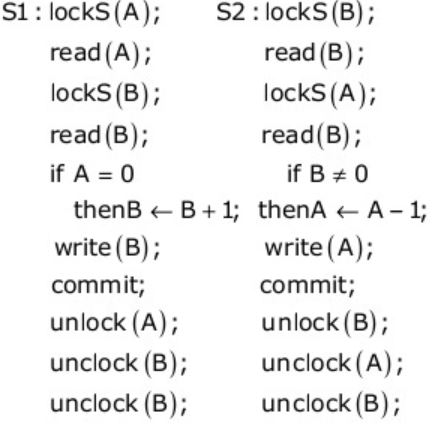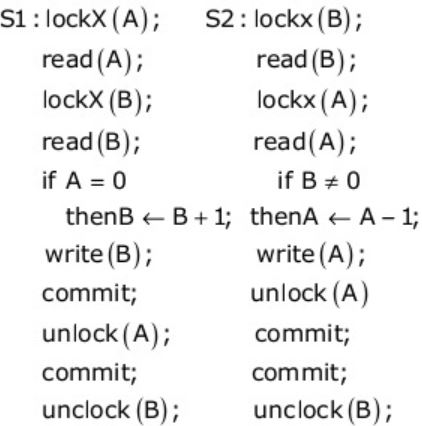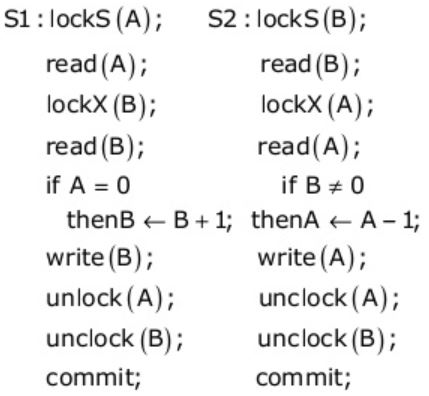Database-Management-System
|
Question 47
|
Consider the following two transactions: T1 and T2.
T1: read(A);
read(B);
if A=0 then B ← B+1;
write(B);
T2: read(B);
read(A);
if B≠0 then A ← A-1;
write(A);
Which of the following schemes, using shared and exclusive locks, satisfy the requirements for strict two phase locking for the above transactions?
 |
|
 |
|
 |
|
 |
Question 47 Explanation:
For strict 2PL the requirements are,
i) Exclusive locks should be released after the commit.
ii) No locking can be done after the first unlock.
(A) Wrong because to write x you need Exclusive Lock.
(B) Wrong because violating the 1st requirement.
(C) Correct.
(D) Wrong because violating the 1st requirement.
i) Exclusive locks should be released after the commit.
ii) No locking can be done after the first unlock.
(A) Wrong because to write x you need Exclusive Lock.
(B) Wrong because violating the 1st requirement.
(C) Correct.
(D) Wrong because violating the 1st requirement.
Correct Answer: C
Question 47 Explanation:
For strict 2PL the requirements are,
i) Exclusive locks should be released after the commit.
ii) No locking can be done after the first unlock.
(A) Wrong because to write x you need Exclusive Lock.
(B) Wrong because violating the 1st requirement.
(C) Correct.
(D) Wrong because violating the 1st requirement.
i) Exclusive locks should be released after the commit.
ii) No locking can be done after the first unlock.
(A) Wrong because to write x you need Exclusive Lock.
(B) Wrong because violating the 1st requirement.
(C) Correct.
(D) Wrong because violating the 1st requirement.
Subscribe
Login
0 Comments
